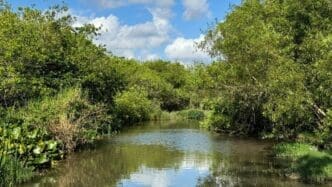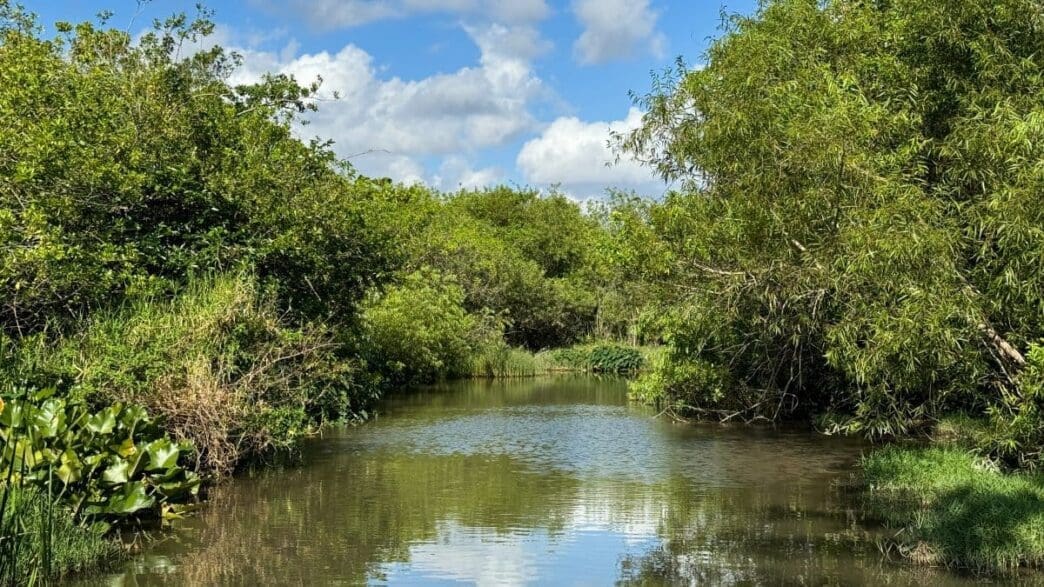For generations, the Miccosukee Tribe of Florida has inhabited the Everglades, a vital part of their heritage. However, decades of engineering and climate change now threaten their existence.
Talbert Cypress, chairman of the Miccosukee tribal council, reflects on the drastic transformation of the Everglades compared to his youth. He notes significant changes in water levels, with pronounced droughts and flooding causing immense harm. According to him, these are some of the most pressing challenges they face today.
Michael John Frank, a tribal elder, describes the current condition of the Everglades as a mere reflection of its once-thriving ecosystem. Decades of development activities have shrunk the wetlands, significantly altering the tribe’s way of life. Tribe members express concerns over water mismanagement, which has contributed to environmental challenges such as fires and pollution, all exacerbated by climate change.
Facing these threats, the Miccosukee have taken assertive steps to protect what remains of their land. Measures include opposing oil exploration, successfully challenging a wilderness designation, and advocating for projects that reconnect parts of the Everglades. Their efforts have resulted in the signing of a co-stewardship agreement aimed at preserving South Florida’s natural landscapes.
The tribe has also been proactive in raising awareness, utilizing prayer walks, campaigns, and airboat tours to educate the public. Despite these initiatives, reports suggest a need for more consistent engagement with the Miccosukee and Seminole tribes to integrate Indigenous knowledge into restoration efforts.
Historically, the Miccosukee made annual journeys to the Everglades for sustenance and ceremonies. The Seminole Wars forced them into refuge within this area, which they now see as their protector—compelling them to reciprocate the protection. The 1940s brought new challenges with significant drainage projects that have since devastated their ecosystems, leading the tribe to advocate for comprehensive restoration.
The Western Everglades Restoration Project symbolizes hope for the tribe, aimed at cleaning polluted waters and improving natural water management. However, challenges persist, including flood risks and a lack of certain project components that may impact water quality. Despite these concerns, tribal leadership remains optimistic about the project’s potential to drastically enhance their future.
In Big Cypress National Preserve, Miccosukee member Betty Osceola continues traditional practices like hunting and gathering medicinal plants. The National Park Service’s proposal for a wilderness designation faced strong opposition from the tribe, who argued it would infringe on their cultural practices and stewardship. The tribe succeeded in halting this designation, further advocating against oil drilling in the area.
Tribal elders like Frank mentor younger generations, emphasizing the importance of guarding the Everglades. At 18, Hector Tigertail embodies this lesson by working to combat invasive species and advocating for his people. Elders stress integrating traditional knowledge with modern practices as essential in the fight to preserve their environment.
In summary, the Miccosukee’s longstanding relationship with the Everglades drives their activism and stewardship, which are crucial to protecting this vital ecosystem amidst ongoing threats.
The Miccosukee Tribe’s unwavering commitment to the Everglades highlights the importance of Indigenous stewardship in preserving natural ecosystems. Their efforts serve as a powerful reminder of the critical role traditional knowledge plays in environmental conservation.
Source: Nbcmiami








